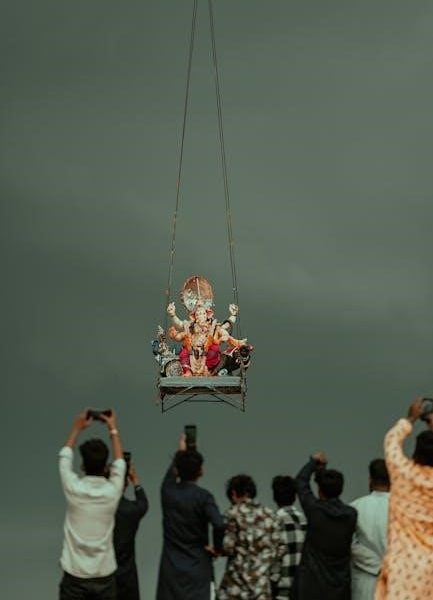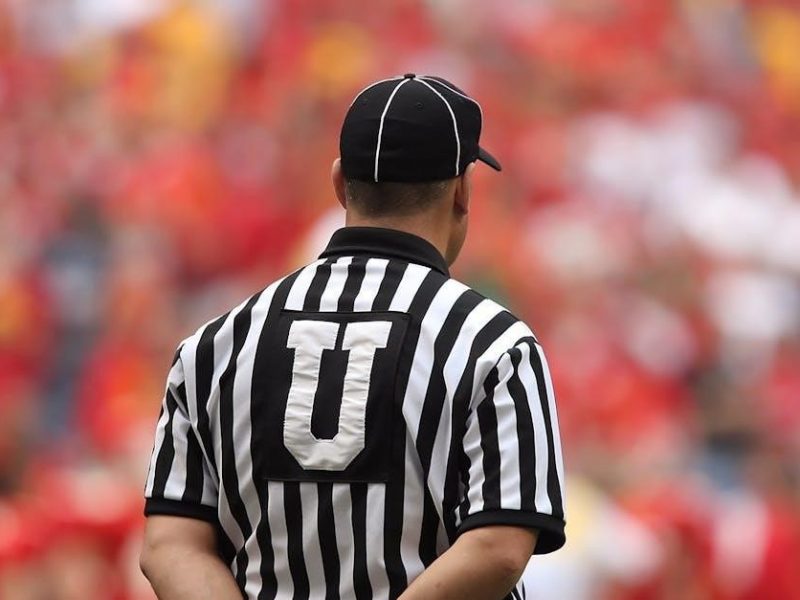Demonology PDF Resources⁚ A Comprehensive Guide
This guide explores diverse PDF resources on demonology, including scholarly works like Moncure Daniel Conway’s “Demonology and Devil-lore,” and King James I’s influential “Daemonologie.” It also highlights readily available free online PDFs and digital libraries offering various texts on demonic lore and practices.
Available Demonology Books in PDF Format
Numerous books on demonology are available in PDF format, catering to various levels of expertise and interest. For those seeking a comprehensive overview, “The Complete Book of Demonolatry” offers a detailed exploration of occult practices, demonology, and related bibliography. Scholars might find Moncure Daniel Conway’s “Demonology and Devil-lore” a valuable resource, providing a scholarly examination of the cultural and historical development of demons and the concept of evil across diverse mythologies. Another significant text, King James I’s “Daemonologie,” offers a historical perspective on the subject, reflecting the beliefs and anxieties of its time. Furthermore, various lesser-known works and specialized texts on specific aspects of demonology, such as demonic classifications or rituals, can be found in online archives and through specialized publishers. The availability of these PDFs allows for widespread access to a rich body of literature on demonology, facilitating independent study and research for both novices and seasoned scholars. Remember to critically evaluate sources and consider the historical context when interpreting these materials. The digital landscape offers a vast array of resources, but not all are equally reliable or accurate.
Free Online Resources and Digital Libraries
The internet provides a wealth of free resources for those interested in demonology. Several digital libraries, such as the Internet Archive, offer a substantial collection of digitized books and texts on demonology, many available for free download as PDFs. These libraries often contain historical texts, such as older editions of demonological treatises and grimoires, providing valuable insights into historical perspectives on demons and their influence. While these resources are valuable, it’s crucial to critically assess their authenticity and accuracy. Many websites and online forums dedicated to occult studies and the paranormal also offer articles, essays, and discussions related to demonology, though the reliability of this information can be inconsistent. Users should always cross-reference information from multiple sources and consider the potential biases of authors and websites. Furthermore, be aware that some freely accessible materials may be incomplete, poorly scanned, or lack proper scholarly editing. Careful discernment is essential when utilizing free online resources for academic or serious research on demonology.
King James I’s “Daemonologie”⁚ A Key Text
King James I’s “Daemonologie,” published in 1597, stands as a pivotal text in the history of demonology. Written as a dialogue, this work reflects the prevailing beliefs and anxieties surrounding witchcraft and demonic influence during the late 16th century. Available in various PDF formats online, “Daemonologie” offers a fascinating glimpse into the King’s personal views on demonic activity, its methods, and its societal impact. He meticulously details various demonic manifestations, spells, and the supposed methods employed by witches. The book’s significance extends beyond its historical context; it significantly influenced the legal and social persecution of witchcraft in Scotland and England. Many scholars consider “Daemonologie” not just a treatise on demonology but also a political statement, reflecting the King’s desire to consolidate power and suppress dissent. Its accessible language and detailed descriptions make it a compelling, albeit biased, source for understanding early modern conceptions of the demonic. Researchers today utilize digital copies to analyze its historical and cultural relevance, while acknowledging the inherent biases of its author and the era in which it was written.
Historical and Cultural Context of Demonology
Understanding the historical and cultural context surrounding demonology is crucial when interpreting related texts. Beliefs about demons and their influence have evolved across cultures and throughout history, deeply intertwined with religious, philosophical, and social structures. Early demonological treatises, often found in PDF format today, reflect the anxieties and worldviews of their respective eras. For instance, the demonology of the Renaissance differs significantly from medieval or early modern interpretations. The influence of the Church, particularly during the witch hunts, profoundly shaped the understanding and depiction of demons. These historical shifts are evident in the diverse range of demonological texts available online. Some PDFs focus on specific cultural traditions, highlighting unique demonic entities and associated rituals. Others provide comparative analyses, tracing the evolution of demonic beliefs across various societies. Examining these resources illuminates how cultural anxieties, social structures, and religious doctrines have contributed to the shaping of demonic narratives and their enduring presence in literature, folklore, and popular culture. This broader context enhances comprehension of the historical significance and cultural impact of demonological literature.
Exploring Different Perspectives on Demonology
This section delves into varied viewpoints on demonology, encompassing scholarly analyses, modern interpretations, popular culture portrayals, and ethical considerations in studying this complex subject matter. Different perspectives illuminate the multifaceted nature of demonic beliefs.
Scholarly Analyses of Demonology and Devil-Lore
Scholarly explorations of demonology and devil-lore offer rigorous examinations of historical and cultural contexts shaping beliefs about demonic entities. These analyses often delve into the evolution of demonological systems across various societies and time periods, tracing the development of classifications, attributes, and roles assigned to demons. Many academic works dissect the influence of religious texts, folklore, and societal anxieties in the formation of demonological thought. For instance, studies might compare and contrast different cultural representations of demons, exploring how these representations reflect prevailing social structures and anxieties. The impact of early modern witch hunts and demonological treatises on subsequent understandings of evil is another recurring theme in academic research. Furthermore, these studies frequently explore the relationship between demonology and other fields, such as psychology, anthropology, and literary studies, to gain a multi-faceted understanding of the subject. Researchers often utilize interdisciplinary approaches to analyze the enduring cultural significance of demonology, examining its presence in literature, art, and popular culture. Accessing scholarly articles and books through digital libraries can provide invaluable insights into the academic discourse surrounding demonology.
Modern Interpretations and Applications of Demonology
Contemporary interpretations of demonology move beyond purely historical analyses, engaging with its relevance in modern contexts. Some scholars explore the psychological and sociological aspects of belief in demonic forces, examining how such beliefs manifest in contemporary society. This might include investigating the role of demonology in certain religious or occult practices, analyzing the psychological impact of belief in demonic possession, or exploring the ways in which demonology influences narratives and representations of evil in modern media. Furthermore, researchers may examine the intersection of demonology and other fields, such as mythology, folklore studies, and religious studies, to provide a more comprehensive understanding of its continuing influence. The use of demonology in popular culture, including literature, film, and video games, also receives attention, with researchers analyzing how these representations shape perceptions of demons and related concepts. The study of contemporary demonolatry and its various practices also offers a lens through which to understand modern engagements with demonological themes. This exploration can include analyses of ritual practices, belief systems, and the social dynamics within contemporary demonolatry communities. These modern interpretations frequently engage with ethical considerations surrounding the study of demonology, recognizing the potential for misinterpretations and misuse of related information.
The Role of Demonology in Popular Culture
Demonology significantly impacts various forms of popular culture, shaping narratives and influencing how audiences perceive evil and the supernatural. Books, movies, and video games frequently incorporate demonic entities, drawing inspiration from historical and fictional demonologies. These fictional portrayals often reimagine classic demons or create entirely new ones, reflecting contemporary anxieties and cultural trends. The visual representation of demons also evolves, adapting to changing aesthetic styles and technological advancements. Analyzing these representations reveals how cultural attitudes towards evil, morality, and the supernatural shift over time. The use of demonology in entertainment isn’t solely for shock value; it’s a powerful tool for exploring complex themes such as good versus evil, temptation, and human fallibility. Moreover, the commercial success of demonology-themed entertainment underscores the enduring fascination with the subject. The prevalence of demonology in popular culture necessitates critical examination of its impact on public perception and understanding of the subject. This includes evaluating the ethical implications of sensationalized or inaccurate portrayals, as well as the potential for misinterpretations and the reinforcement of harmful stereotypes.
Ethical Considerations in Studying Demonology
Engaging with demonology necessitates careful consideration of ethical implications. Researchers must approach the subject with sensitivity, acknowledging the potential for misinterpretation and the potential harm caused by irresponsible handling of sensitive material. Respect for diverse beliefs and cultural practices is paramount. Avoidance of perpetuating harmful stereotypes associated with demonology is crucial, particularly regarding marginalized groups who have historically been unfairly targeted through demonization. Scholarly rigor is essential; researchers should rely on credible sources and avoid promoting unsubstantiated claims or practices. Responsible dissemination of information is vital to prevent the spread of misinformation and potential harm to individuals or communities. Transparency about research methods and potential biases is essential. The potential impact on vulnerable individuals should always be considered, including the risk of causing psychological distress or encouraging harmful practices. Furthermore, researchers should be mindful of the potential for their work to be misused or misinterpreted by others, potentially contributing to harmful actions or beliefs. Ultimately, ethical engagement with demonology prioritizes responsible scholarship and safeguards against potential harms.

